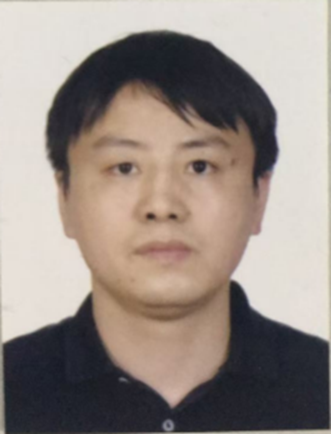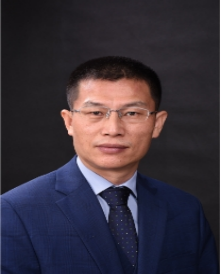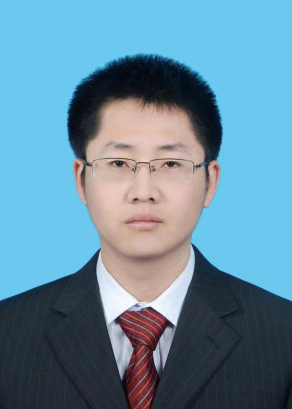
Invited Speakers
| 分论坛一:AI+工业场景实践应用 |
| Chief Technology OfficerJinkun Lin SeedMath Technology Limited, Beijing, China Bio: Jinkun Lin is the CTO of SeedMath Technology Limited, Beijing, China. He holds a Ph.D. from Peking University and previously researched at the Institute of Software, Chinese Academy of Sciences. His research interests include constraint solving and software testing. He was a contributor to the development of an SMT solver that won two medals in the 2022 International SMT Competition. Additionally, the developed MIP solvers have established more than 10 new records in the MIPLIB benchmarks. His work has been published in top Artificial Intelligence and Software Engineering conferences, including AAAI, IJCAI, FSE, and ICSE. Title: Constraint Solvers meet Large Language Model Abstract: Constraint solvers for Operations Research (OR) are fundamental to a wide array of industries, with critical applications in areas such as logistics, supply chain management, finance, and manufacturing. However, solving real-world industrial OR problems often presents significant computational challenges; OR solvers frequently struggle to handle their complexity. Moreover, the modeling process – specifically, translating real-world problems into a format solvable by optimization solvers – relies heavily on the substantial effort of domain experts. This report introduces a local search-based linear programming solver for these complex problems and explores how Large Language Models (LLMs) can automate the challenging modeling process, aiming to reduce reliance on manual expertise and accelerate OR solution deployment. |
General Manager Dongliang Zhang Beijing Bohua Xinzhi Technology Co., Ltd., China Bio: Zhang Dongliang, General Manager of the Digital Intelligence Department at Beijing Bohua Xinzhi Technology Co., Ltd., has led the construction of predictive maintenance platforms for critical equipment at group-level companies such as Sinopec, PetroChina, CNOOC, China National Pipeline Corporation, and China National Energy Group. He has also overseen the development of the health management system for the Yangtze series engines at AECC Commercial Aircraft Engine Co., Ltd., and the health management system for model gas turbines at AECC 606 Institute. Additionally, he contributed to the preparation of the 2021 Industrial Equipment Digital Twin White Paper released by the China Academy of Information and Communications Technology. His company has been recognized as a digital twin model service provider. Title: AI Empowers Intelligent Industrial Operations and Maintenance Abstract: This report focuses on the application and empowerment of artificial intelligence (AI) technology in the field of industrial intelligent operations and maintenance (O&M). With the advancement of Industry 4.0 and digital transformation, AI, through technologies such as machine learning, deep learning, and big data analytics, provides innovative solutions for real-time condition monitoring, fault prediction and diagnosis, and maintenance strategy optimization of industrial equipment. The report systematically explores the application of AI in key technologies, including predictive maintenance and digital twins. It also showcases the significant achievements of AI in improving production efficiency, reducing maintenance costs, and minimizing unplanned downtime through practical applications in industries such as petrochemicals and energy. Finally, the report outlines future trends in AI-driven industrial intelligent O&M, offering practical insights for digital transformation and intelligent upgrading in the industry. |
|
| Dr. Chen Shen Beijing Urban Construction Intelligent Control Co., Ltd., China Bio: Dr. Shen Chen completed his Ph.D studies at the Key Laboratory of Molecular Imaging of the Institute of Automation, Chinese Academy of Sciences (CASIA). Subsequently, he served as a postdoctoral fellow and Research Associate at the School of Life Sciences and Medicine, University of Science and Technology of China (USTC). During his scientific research journey, as the first author or corresponding author, he has published 8 original search papers and has been deeply involved in a number of national key scientific research projects. His research fields are extensive, covering high-performance computing, biomedical imaging, computational neuroscience, big data science, and artificial intelligence. Currently, he is mainly committed to promoting basic and clinical medical research with the help of large artificial intelligence models, and conducting research and development of large models for various vertical industries, as well as taking on the task of cultivating corporate talents to contribute to technological innovation and talent reserve in related fields. Title: AI-Driven Intelligent Transformation of the Smart City and Urban Rail Abstract: Practical cases of efficient deployment and rapid rollout demonstrate the achievements of large model technologies such as DeepSeek in constructing models for scenarios like rail transit construction and operation and maintenance. At the same time, high-quality and standardized datasets, as well as professional model evaluation, are crucial for the promotion of large industry models in the industrial field. |
Senior AI Architect Hong Hu Lenovo Group, China Bio: Senior AI Architect at Lenovo Group, specializing in agent technology innovation and deep industry integration. Deeply involved throughout the company's intelligent transformation, leading the planning and development of Lenovo's agent solution product ecosystem. Possesses extensive practical experience in AI implementation. Title: In the Era of AI for All, Intelligent Agents Lead The Industrial Transformation Abstract: 1、The Inevitable Trend: The era leap Driven by the cognitive revolution 2、The Rise of The Storm: The AI industry restructuring caused by DeepSeek. 3、The Future is Here: Intelligent Agents as the Core Vessel for AI Inclusivity |
|
| 分论坛二:工业数据治理与大模型赋能 |
| Deputy General Manager Youchang Cui Shaanxi Automobile Group Co., Ltd.,China Bio: Deputy General Manager and Chief Information Officer at Shaanxi Automobile Holding Group Co., Ltd. With years of dedicated research in manufacturing informatization strategic planning and practical implementation of enterprise informatization and AI-powered digital transformation, I have spearheaded the transformation of Shaanxi Heavy-duty Automobile into a benchmark enterprise for Intelligent digital transformation. This initiative has significantly advanced the integration of informatization and industrialization across the industry, driving sector-wide progress in digital-industrial convergence. Title: Towards an Integrated Data Governance Framework: Empirical Insights from Shaanxi Automobile Holding Group Abstract: With the accelerated advancement of digital transformation, the commercial vehicle industry is confronting significant challenges in massive data management and extracting deeper value from data. As the largest commercial vehicle manufacturer in Northwest China, Shaanxi Automobile Holding Group Co., Ltd. has established an extensive infrastructure encompassing over 100 information systems through two decades of IT development. This effort has accumulated approximately 3 petabytes (PB) of heterogeneous data resources, including telematics data, smart device data, and business system data. This report aligns with the strategic imperatives of enterprise digital transformation, delving into the critical issue of leveraging data-driven approaches to achieve continuous optimization of business processes and substantial improvements in operational efficiency under current industrial conditions. By actively adopting leading domestic and international data governance methodologies while closely integrating with its operational realities, Shaanxi Automobile Holding Group has developed a tailored applied governance model. Building upon this foundation, the company further integrates big data technologies to explore practical applications, innovatively proposing a full lifecycle management-based data governance framework. This initiative aims to unlock data value,drive high-quality development, and provide actionable insights for the industry's digital transformation journey. |
| Vice General Manager Longyuan Luan Shaanxi Big Data Group Co.,Ltd., China Bio: Luan Longyuan, born in 1984, has more than ten international standard proposals and several patents in the field of big data, artificial intelligence, and communication, participates in the research and development of data disaster recovery and data mining platform software for several state ministries and commissions, completes a demonstration project of cloud computing and big data in Shaanxi Province, one of the principal drafters of two Chinese software industry standards, and takes the lead in the establishment of the Shaanxi Province Mining Industrial Internet Shaanxi Province Engineering Research Centre for Colleges and Universities. 2024 Shaanxi Provincial Technology Innovation Guidance Plan, Programmable Quantum Computing Cloud Platform Project Leader. Title: Programmable Optical Quantum Computer QPU, Application Algorithms and Cloud Platform for Industrial Applications Abstract: Providing industrial enterprises with QPU computing power based on programmable optical quantum computers and algorithmic services for industrial applications in the form of a‘quantum+classical’cloud platform. |
|
| Chairman Ke ZhengTal Technology, China Bio: Zheng Ke, holding a master's degree, serves as the Chairman of Tal Technology. He is a senior BIM strategic planner, a first-level intelligent construction engineer, a visiting professor at Xi'an University of Posts and Telecommunications, an expert of the Industrial Internet Research Institute, an expert of Xi'an Big Data Innovation and Development Research Institute, the Deputy Director of the Joint Laboratory of Industrial Internet and Artificial Intelligence at Xidian University, and the Deputy Director of the Joint Laboratory of Digital Twin and Artificial Intelligence at Xi'an University of Posts and Telecommunications. He is also a co-founder of the company. With years of experience in digital and information project construction, Zheng Ke is familiar with the AI + digital twin technology system and system architecture. He was awarded the title of "Earthquake Relief Warrior in 2008". He has previously worked in "China Communication Second Engineering Bureau" and "Shaanxi Zhongseng Communication Industry Development Co., Ltd.". He has been in charge of approximately 330 national, provincial, and municipal key information projects, including "China Unicom's National Trunk Line Project in Yunnan, Guizhou, and Sichuan", "Project of the Checkpoint Bureau of the State Security Bureau", "The Fourth to Tenth Phase Projects of Sichuan Unicom's Second Trunk Line", and "The Coverage Project along the Qinghai-Tibet Railway". The total amount of projects managed and implemented by him is approximately 370 million yuan. He participated in formulating the group standards for the functional architecture of the industrial digital twin engine and the group standards for industrial digital twin models. Title: Full-scene Intelligent Assistance for the Mine with Digital-Physical Fusion Based on Large-scale Model and Digital Twin Abstract:The full - scene intelligent assistance for the mine with digital - physical fusion based on large - scale models and digital twins adopts advanced technologies such as digital twins, artificial intelligence, edge computing, and large - scale models. Centering around the dual - wheel drive model of "data - driven + intelligent decision - making", it constructs a digital - physical fusion - assisted decision - making system with data as the core driving force, giving full play to the multiplier effect of data factors, promoting the development of new - quality productivity, and injecting new momentum into the mining industry. |
| 分论坛三:智能算法创新与行业应用 |
| Prof. Feng Tian Xi'an Jiaotong University, China Bio: Tian Feng is a professor and doctoral supervisor at Xi'an Jiaotong University. He has received the Wang Kuancheng Education Award and the University Teaching Excellence Award. He serves as the Assistant Director of the Faculty of Electronic and Information Engineering, Director of the Shaanxi Key Laboratory of Big Data Knowledge Engineering, and Director of the Big Data Algorithm Testing and Demonstration Application Center at the National Engineering Laboratory for Big Data Algorithmic and Analysis Technology. He is also a council member of the 4th China Education Development Strategy Association and Vice Chairman of the Smart Education Committee of the Chinese Association of Automation. His research focuses on artificial intelligence and smart education, as well as big data mining applications. He has led or completed over 20 projects, including 4 National Natural Science Foundation projects and 3 national Ministry of Science and Technology projects. He has published more than 130 papers in high-impact journals and conferences, such as IEEE TKDE, IEEE TMM, AAAI, NeurIPS, ACM SIGIR, ACL, and Computer Research and Development. Some of his achievements have been widely applied in education and tax-related fields, earning him 1 National Science and Technology Progress Award (Second Class), 2 National Teaching Achievement Awards (Second Class), 4 provincial/ministerial-level research and teaching awards (First Class), and 3 special/first-class science and technology awards from national academic societies. Title: Intelligent Construction of Hierarchical Category Systems in an Open World Abstract: Hierarchical category systems are common classification frameworks in nature and society, such as the tree-structured knowledge classification system in education and the hierarchical teaching evaluation index system. However, in an open world, such knowledge systems evolve rapidly, requiring continuous discovery of new categories and ongoing maintenance. How to discover, represent, and construct such new knowledge has become a hot topic in machine learning and natural language processing (NLP). This report introduces ongoing algorithmic research in this direction and presents application cases, including intelligent dialogue systems, open-ended question answer evaluation, and higher education teaching quality assessment. Finally, future work is discussed. |
| Prof. Xiaoying Pan Xi'an University of Posts & Telecommunications, China Bio: Dr. Pan Xiaoying, Professor, Ph.D., and UCLA Visiting Scholar, as well as a Distinguished Member of the China Computer Federation (CCF). She serves as the Chief Scientist of Shaanxi Qinchuangyuan’s "Scientist + Engineer" Team Construction Program, an Academic Leader in Computational Intelligence at Xi’an University of Posts and Telecommunications, and a recipient of the "May 1st Women’s Pacesetter" Award in Shaanxi’s Education, Science, Culture, Health, and Sports System. Recognized for her excellence in academia, she has been honored as a "Top Ten Mentor," "Four-Have Good Teacher" and "Outstanding Women’s Individual" at XUPT. She holds leadership roles including Chair of the Department of Computer Science and Technology at XUPT, Deputy Director of Shaanxi Provincial Key Laboratory of Network Data Analysis and Intelligent Processing, and Director of the Medical Big Data Laboratory. Her professional engagements extend to committee memberships in the CCF Northwest Chapter, Software Engineering Committee, and Shaanxi Provincial Youth Federation, along with being a Digital Think Tank Expert for the China Service Trade Association. With a research focus on smart healthcare, Dr. Pan has pioneered advancements in disease risk prediction, endoscopic image processing, infant motor ability detection, and personalized medical services. She has led over 30 national and provincial projects, published 200+ papers in journals, authored two monographs, secured 30+ patents, and earned four provincial/ministerial awards. Title: Advances in Artificial Intelligence for Nasopharyngolaryngoscopy: Innovations and Clinical Implementations Abstract: With the rapid advancement of artificial intelligence (AI) technology, the integration of medicine and engineering has emerged as a pivotal direction for next-generation medical device innovation. This report addresses critical bottlenecks in early-stage pharyngeal cancer screening, including unstable endoscopic image quality, low discriminability of lesion features, and insufficient diagnostic efficiency. It systematically explores intelligent multimodal endoscopic image analysis technologies, focusing on four core innovations: standardized workflow development for laryngoscopy, quality enhancement of degraded coupled images, cross-modal migration between white light and narrow-band imaging, and AI-driven screening and diagnostic model development. The presentation further details the underlying algorithms and introduces an AI-powered early-stage nasopharyngeal cancer detection system developed based on these technologies. |
|
| Director Ruinan ZhangGeneral Technology Healthcare Big Data Technology (Beijing) Group Co., Ltd., China Bio: Ruinan Zhang, Director of AI and Big Data department in General Technology Healthcare Big Data Technology (Beijing) Group Co., Ltd. He graduated from University of Minnesota, specialize in machine learning algorithms and parallel computing. He worked in Bayer for nearly 10 year, in charge of deep learning researches and applications. In the areas of innovative gene filtering technology, protein evolution, RNAi applications at organ level, and pedigree tree based marker prediction, he has abundant AI and big data experiences and fruitful achievements. Title: Revolutionizing Healthcare: The Disruptive Impact of Generative AI and Medical Big Models on Clinical Practice and Patient Care Abstract:Deep learning, especially large language models (LLMs) are poised to transform healthcare by enhancing diagnostic accuracy and personalizing treatments. This talk will explore the transformative power of AI and medical big models across two key domains: Clinical Decision-Making and Predictive Analytics: AI-driven systems, such as LLMs based Clinical Decision Support Systems (CDSS), analyze vast datasets to provide evidence-based recommendations, reducing diagnostic errors and improving patient outcomes. Meanwhile, in medical imaging analysis, multi-modal data start to be integrated for precise diagnoses. Operational Efficiency and Remote Patient Monitoring: AI-powered IoT devices and remote monitoring tools enable continuous health tracking, reducing hospital readmissions and optimizing resource allocation in hospitals. LLMs also enhance patient education and health management. |
Dr. Xiaomin Jin Xi'an University of Posts and Telecommunications, China Bio: Xiaomin Jin, Ph.D., is currently employed at the School of Computer Science and Technology, Xi'an University of Posts and Telecommunications. He also is the core member of both Shaanxi Key Laboratory of Network Data Analysis and Intelligent Processing, and the Xi’an Key Laboratory of Big Data and Intelligent Computing. He is primarily engaged in research and teaching in the fields of edge computing, collaborative computing, and industrial Internet. He has been selected as a member of the Network and Data Communication Committee of the China Computer Federation and is the scientific expert at the "Qin Chuang Yuan" headquarters window. He has led one project funded by the National Natural Science Foundation of China and several grants from Shaanxi province. He has published 15 papers indexed by SCI and EI, applied for 12 invention patents, and registered 11 software copyrights. Title: Research on Resource Management Methods for Edge Computing in Industrial Internet Abstract: Compared to traditional industrial networks, the industrial Internet deeply integrates intelligence with industrial production processes. The industrial Internet requires robust computational resources to enable intelligent production and management. As an emerging computing paradigm following cloud computing, edge computing can provide powerful and flexible computational capabilities for the Industrial Internet. Resource management is critical to the efficient operation of edge computing. Inefficient resource management not only fails to meet the required resource demands but also leads to resource wastage. This report focuses on two resource management approaches in industrial Internet: edge server deployment and task resource allocation, which address resource management challenges in the integration of edge computing and industrial Internet from physical and virtual perspectives, respectively. Edge server deployment optimizes the spatial distribution and computing capacity configuration of physical resources, while task resource allocation enables efficient scheduling and utilization of virtual resources. |
|
| 分论坛四:通信技术与软件工程暨智能工厂工业软件 |
| Prof. Zheng Yan IEEE Fellow, Xidian University, China Bio: Dr. Zheng Yan, Distinguished Professor at Xidian University, is an IEEE Fellow, IET Fellow, AAIA Fellow, and AIIA Fellow. She is a Stanford World top 2% scientist, and a highly cited researcher by Elsevier in China. Her research interests are in trust management, information and network security, privacy protection, and data analysis. She has published more than 410 papers in prestigious journals and conferences worldwide, including IEEE SP, IEEE TIFS, IEEE TDSC, INFOCOM, and ICSE, with over 270 as first or corresponding author. She has authored two English books, used for teaching for nearly a decade. She holds 110+ international and domestic patents, including 50 PCT patents, with more than150 patents adopted by industry, most of them are solely invented by her. Some of these patents have entered international standards or are widely used. Her U.S. patents are tracked by over 60 Fortune Global 500 companies. She has received numerous awards, including the Nokia Distinguished Inventor Award, three EU awards, N²Women Star in Computer Networking and Communications, IEEE TCSC Award for Excellence in Scalable Computing, IEEE TEMS Distinguished Leadership Award, 18 times of IEEE Outstanding Leadership and Service Awards, AALTO ELEC Impact Award, IEEE ComSoc Big Data Technical Committee Best Journal Paper, IEEE TrustCom Outstanding Paper, Shaanxi Natural Science Award, and Outstanding Doctoral Dissertation Supervisor by the Electronic Association of China. She founded the first IEEE Blockchain International Conference and serves as a Steering Committee Co-chair. She serves as a Co-EiC of Information Sciences and Area Editor/Associate Editor/Editor Board Member for over 60 journals, including ACM Computing Surveys, Information Fusion, IEEE IoT Journal, IEEE Network Magazine, etc. She has served as a General Chair or Program Committee Chair for over 40 international conferences and has delivered over 30 keynote and invited talks at international conferences and renowned enterprises. Title: AI-empowered Trust and Trustworthy AI Abstract: While artificial intelligence (AI) is contributing to the advancement of human society, it also presents us with new challenges. Its trustworthiness is worthy of in-depth exploration. This talk elucidates the aids of AI for trust and indicates the problems of AI trust, especially potential attacks on AI and the factors that impact AI trust. I will introduce recent research achievements of my team, including a GNN-based robust and explainable trust evaluation model and a stealthy and practical audio backdoor attack with limited knowledge. Finally, several insights are proposed regarding AI trust management. |
| Prof. Xiaoyan Hu Xi'an Jiaotong University, China Bio: Dr. Hu received the M.Eng. degree in Information and Communications Engineering from Xi'an Jiaotong University, Xi'an, China, in 2016, and the Ph.D. degree in Electronic and Electrical Engineering from University College London (UCL), London, U.K., in 2020. From 2019 to 2021, she was a Research Fellow with the Department of Electronic and Electrical Engineering, UCL, U.K. She is currently a Distinguished Researcher with the School of Information and Communications Engineering, Xi'an Jiaotong University, Xi'an, China. Her research interests are in the areas of 5G&6G wireless communications, including topics such as edge computing, reconfigurable intelligent surface (RIS)&intelligent reflecting surface (IRS), UAV communications, integrated sensing and communications (ISAC), secure&covert communications, and learning-based communications. She has published one WILEY book chapter on IRS-Aided Mobile Edge Computing: From Optimization to Learning, and 40+ research papers including 2 ESI highly cited papers and 4 Journal Popular Papers. Dr. Hu is an IEEE Member. She has been selected as a member of Young Elite Scientists Sponsorship Program of the China Association for Science and Technology, and a member of the Qin Chuang Yuan High-Level Innovation and Entrepreneurship Talent Program. She has been honored as a “Si Yuan Scholar”. She is the recipient of the IEEE Communication Society Big Data 2023 Best Influential Journal Paper Award. She has been recognized as an Exemplary Reviewer for IEEE COMMUNICATIONS LETTERS. Dr. Hu served the Assistant to the Editor-in-Chief of IEEE WIRELESS COMMUNICATIONS LETTERS from Jan. 2020 to Dec. 2023. Now, she is an Associate Editor IEEE WIRELESS COMMUNICATIONS LETTERS. She has also served as a Guest Editor for ELECTRONICS on Physical Layer Security and for CHINA COMMUNICATIONS Blue Ocean Forum on MAC and Networks. Title: STAR-RIS Assisted Secure Communications and Mobile Edge Computing Abstract: Due to the advantages of low cost, programmability, and easy deployment, reconfigurable intelligent surface (RIS) has attracted widespread attention from both academia and industry which has been considered as one of the key enabling technologies for 6G. In order to further develop and explore the applications of RIS in wireless communication networks, some new RIS structures have been proposed, including simultaneously transmitting and reflecting RIS (STAR-RIS). STAR-RIS can provide a 360° coverage, which can enhance the service of wireless communications. However, this new structure also brings new challenges. In this report, we first introduce the application potentials of the STAR-RIS in enhancing the secure communications, including the issues of physical layer security (PLS) and covert communications, to deal with the security challenges from 360° eavesdropping. Then, we propose a STAR-RIS-assisted UAV-enabled mobile edge computing (MEC) architecture, which can fulfill bi-directional task offloading as well as simultaneous communication and offloading, taking advantage of the 360° coverage range of STAR-RIS and the flexibility of the UAV. |
|
| Prof. Zhenming ZhangNorthwestern Polytechnical University, China Bio: Zhenming Zhang, Ph.D. in Engineering, is a Professor and Doctoral Supervisor at the School of Mechanical and Electrical Engineering, Northwestern Polytechnical University (NPU). He serves as the Chief Expert of the Intelligent Factory and Digital Supply Chain Team at the Key Laboratory of Industrial Engineering and Intelligent Manufacturing under the Ministry of Industry and Information Technology. Additionally, he is the Executive Director of the ""5G+ Industrial Innovation"" Joint Laboratory, a collaborative initiative established by NPU, Shandong Unicom, and Dezhou City. Professor Zhang has long been engaged in teaching, research, and application development in the fields of manufacturing informatization, Manufacturing Execution Systems (MES), and digital production management. Since 1997, he has led the development of the CAPPFramework software. In 1998, he founded and served as the Director of the CAPP and Manufacturing Engineering Software Research Institute at NPU. The CAPPFramework software he developed has been widely adopted by major aircraft manufacturers such as Shenyang Aircraft Corporation under the Aviation Industry Corporation of China (AVIC), as well as in the aerospace, aviation, and equipment manufacturing industries.In 2004, he was awarded the 5th Shaanxi Youth Science and Technology Award. He has led over 10 major research projects, including the National Key Technology R&D Program, the National High-Tech Development Plan (863 Program), and the National Defense Basic Research Program. He has published more than 100 academic papers, with over 20 indexed by SCI and EI. He has also received 8 provincial and ministerial-level awards for scientific and technological progress, including 2 first prizes, 3 second prizes, and 3 third prizes. From February 2005 to February 2016, he successfully promoted domestically developed PDM/CAPP/MES software to more than 200 large and medium-sized manufacturing enterprises, including Lanzhou LS Group, Shenyang Blower Works Group, CIMC in Shenzhen, and China Erzhong Group. In 2016, he co-founded the company Mai Aimu, launching the NOMES product, which aims to popularize digital production management, drive the digital transformation of manufacturing enterprises, and build flexible smart factories and digitally collaborative supply chains. Title: Distributed Manufacturing Operations Management and Smart Factories Operating Systems Towards Industry 5.0 Abstract:Against the backdrop of the Industry 5.0 transformation, traditional centralized Manufacturing Execution Systems (MES) struggle to meet the complex demands of flexible and small-batch production, while Distributed Manufacturing Operations Management (MOM) emerges as a key solution for achieving efficient, human-centered manufacturing through hierarchical autonomy and collaborative mechanisms. This paper proposes a four-level distributed MOM architecture oriented toward human-centric manufacturing, encompassing Manufacturing Units (UMS), Production Lines (PL-MES), Workshops (MOM), and Factories (MOM), supporting dynamic reconfiguration and resource optimization from the unit level to cross-factory operations. Building on this, the study designs a smart factory operating system architecture based on "cloud-edge-end" collaboration, achieving vertical integration of equipment, systems, and business processes through an industrial internet platform. Leveraging intelligent connectivity gateways and modular microservices, the architecture constructs a decentralized decision-making chain. Innovatively integrating multi-agent systems and federated learning, the architecture significantly enhances the autonomous decision-making capabilities of manufacturing units and cross-level collaboration efficiency. Additionally, the system supports rapid deployment for small and medium-sized enterprises through low-code toolchains, lowering technical barriers. This research provides a theoretical framework and technical pathway for human-machine collaborative manufacturing in the Industry 5.0 era, driving the paradigm shift of manufacturing systems from rigid control to ecological self-organization, laying a solid foundation for the sustainable development of future smart factories. |
Researcher Junhao Geng Northwestern Polytechnical University, China Bio: Dr. Geng Junhao is a researcher at the School of Mechanical Engineering, Northwestern Polytechnical University in China, where he also serves as a doctoral advisor. He holds multiple leadership roles, including Director of the Institute of Industrial Augmented Intelligence and Deputy Director of the Shaanxi Provincial University Engineering Research Center for Intelligent Factory Industrial Software. As a former visiting scholar at the University of Alberta, Canada, Dr. Geng specializes in intelligent manufacturing technologies for complex products, with particular expertise in industrial augmented intelligence, EWIS intelligent manufacturing systems, and complex industrial software development. His notable achievements include leading 8 national-level research initiatives and authoring over 50 peer-reviewed publications in prestigious journals such as Journal of Manufacturing Systems (JMS), IEEE Transactions on Industrial Informatics (TII), International Journal of Production Research (IJPR), and Computers in Industry (CII). Recognized for his contributions, he has been awarded three provincial/ministerial-level Science and Technology Progress Awards. A pioneering accomplishment under his guidance is the development of China's first open-access industrial augmented reality platform (OpenIAI), which has become a benchmark in smart manufacturing infrastructure. Title: Industrial Augmented Intelligence: An Emerging Trend in Next-Generation Industrial Software Abstract: While routine operations have been progressively replaced by automated systems, complex industrial activities requiring cognitive flexibility and decision-making support remain predominantly human-dependent. Industrial Augmented Intelligence (IAI) emerges as an emerging trend in next-generation industrial software development. IAI-enabled systems exhibit three core competencies: environmental adaptability, human-machine collaborative intelligence, and intelligent decision-support capabilities. These advanced functionalities enable precise and proactive assistance to operators during the execution of sophisticated industrial tasks, thereby allowing human practitioners to redirect their cognitive resources toward innovative problem-solving. A case study of the EWIS intelligent connectivity industrial software demonstrates that IAI has moved beyond theoretical frameworks into practical implementation, with empirical evidence confirming its operational efficacy. |
|
| Assoc. Prof. Lijiang HuangNorthwestern Polytechnical University, China Bio: Huang Lijiang, Ph.D. in Engineering, is an Associate Professor at the School of Mechanical and Electrical Engineering, Northwestern Polytechnical University. His research focuses on mechanical manufacturing processes, computer-aided process planning (CAPP), and smart factory and collaborative manufacturing technologies. He teaches courses including Principles of Metal Cutting and Tools, Computer-Aided Process Planning, and Intelligent Manufacturing and Collaborative Production Management. He has led or participated in over 10 national and defense projects, such as sub-projects under China’s National 863 Program, pre-research initiatives for the General Armament Department, and Civil Aircraft Special Projects, along with 20+ industry-funded collaborative projects. With 40+ academic publications (8 EI-indexed, 2 SCI-indexed), he holds 4 national invention patents and 12 software copyrights. His contributions have earned him awards including the National Defense Science and Technology Second Prize, Third Prize, and two Shaanxi Provincial Science and Technology Third Prizes. At the university’s Smart Manufacturing Research Institute, he spearheaded the development and deployment of the CAPPFramework series and Cloud CAPP System, driving their adoption in over 300 large enterprises across aviation, aerospace, shipbuilding, electronics, and related industries. Title: Exploration of the Application of Large Models in Intelligent Process Decision making Abstract:As industrial manufacturing accelerates its transition toward intelligence and flexibility, large models (LMs), with their robust capabilities in data comprehension, pattern recognition, and generalization, offer a novel technological pathway for intelligent process decision-making. This study focuses on innovative applications of large models in process route planning, process resource matching, and process quality auditing. We propose a "model fine-tuning–knowledge embedding–decision collaboration" technical framework, addressing key challenges such as domain-adaptive fine-tuning for process engineering, multi-modal process knowledge base construction, and agent-based decision reasoning. A hybrid augmented decision-making paradigm is innovatively introduced, integrating the cognitive capabilities of large models with traditional expert systems. Leveraging the XY-CAPP structured process design system, a prototype of an intelligent process agent is developed. Case studies on the intelligent process design of heat treatment processes validate the feasibility and practicality of the proposed approach. |















